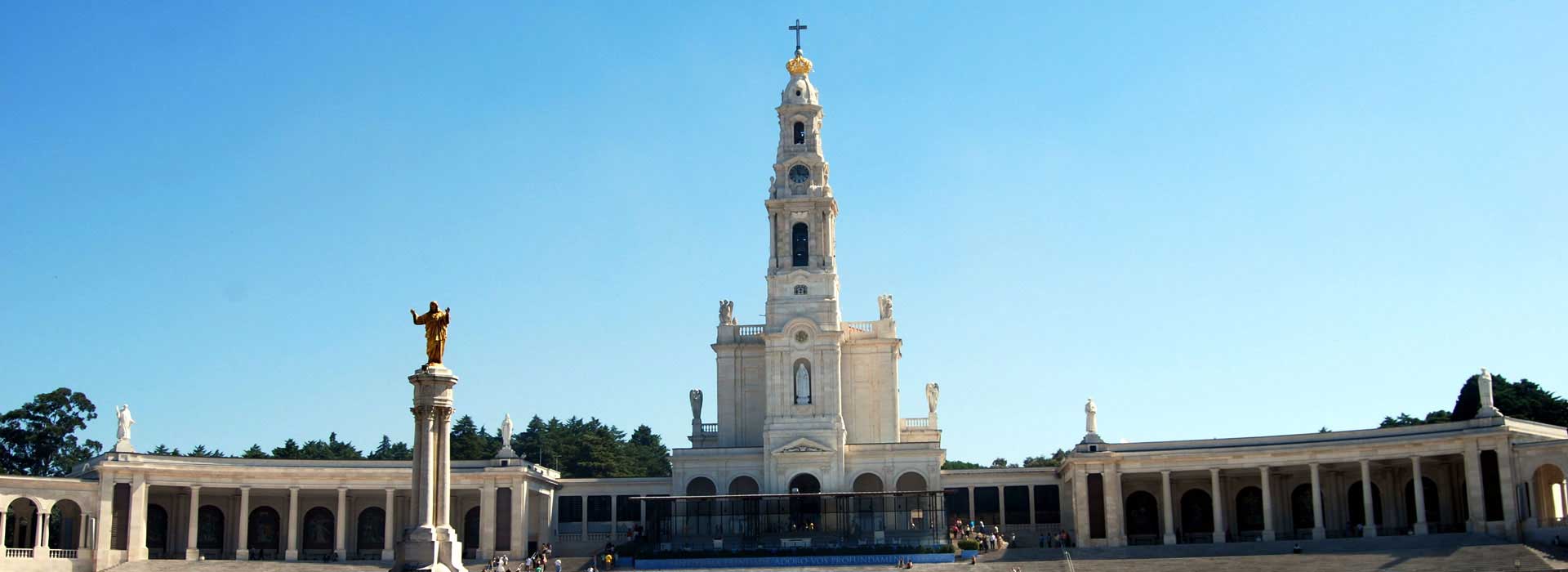
Fátima
Fátima, Portugal, is a globally renowned pilgrimage destination, drawing millions of visitors each year seeking spiritual solace and historical insight. Situated about 128 kilometres (80 mi) north of Lisbon, Fátima holds profound significance in Catholicism, commemorating the reported apparitions of the Virgin Mary to three shepherd children in 1917. These apparitions, accompanied by what believers describe as the Miracle of the Sun witnessed by thousands, solidified Fátima's status as a site of religious devotion and pilgrimage.
The Sanctuary of Our Lady of Fátima, built in the wake of these apparitions, stands as a testament to faith and attracts pilgrims from across the globe. The complex includes the Basilica of Our Lady of the Rosary, where the tombs of the visionaries, Lucia, Francisco, and Jacinta, reside. Additionally, the Chapel of the Apparitions marks the exact spot where the Virgin Mary is said to have appeared.
Fátima's rich history and spiritual significance make it a compelling destination for visitors seeking both religious experience and cultural immersion. From exploring the sanctuary's ornate architecture to participating in religious processions and ceremonies, a visit to Fátima offers a unique blend of devotion and historical exploration that leaves a lasting impression on pilgrims and tourists alike.
THE MIRACLE OF FÁTIMA
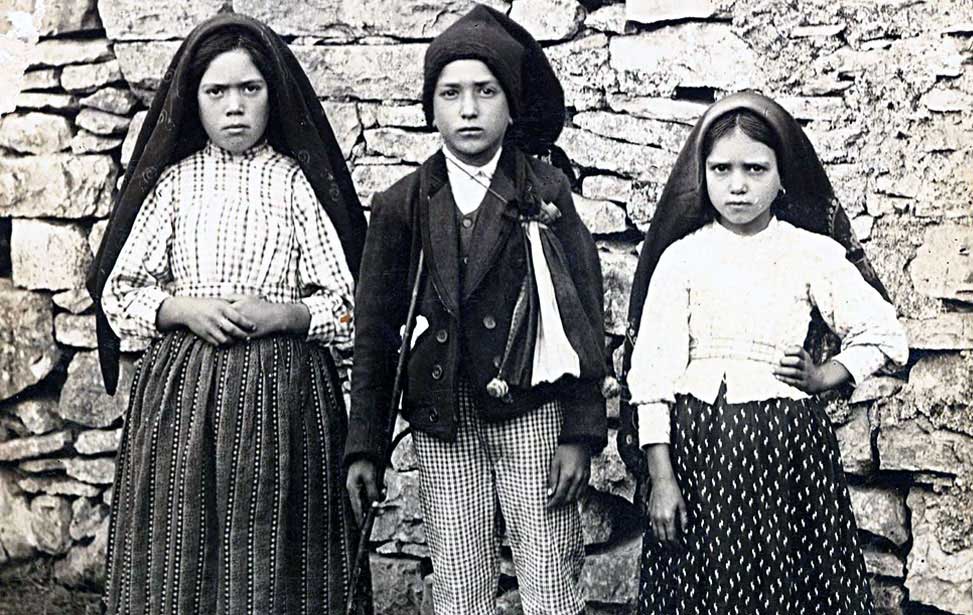
The children of the miracle of Fátima
Discover the enchanting origins of Fátima, Portugal, rooted in the tale of a Moorish princess named Fátima and a Christian knight named Gonçalo Hermigues. Legend has it that Fátima, kidnapped by Hermigues, eventually embraced Christianity and married her captor, adopting the name Oureana. For centuries, Fátima remained a quaint village nestled in the Serra de Aire hills until the 13th of May, 1917, when three shepherd children—Lucia, Francisco, and Jacinta—experienced extraordinary visions of the Virgin Mary in the nearby Cova da Iria.
These mystical encounters, occurring on the 13th day of each subsequent month, revealed prophecies encompassing pivotal world events like World War II, the fall of Communism, and an assassination attempt on Pope John Paul II. To validate their experiences amid scepticism, the children beseeched the "Virgin of the Rosary" for a sign, resulting in the awe-inspiring "Miracle of the Sun." Witnessed by 70,000 people, this phenomenon saw the sun seemingly dance in the sky, emitting vibrant rays of light despite the pouring rain.
Today, Fátima stands as a pilgrimage site of profound spiritual significance, attracting visitors from around the globe, seeking solace, miracles, and a deeper connection to faith and history.
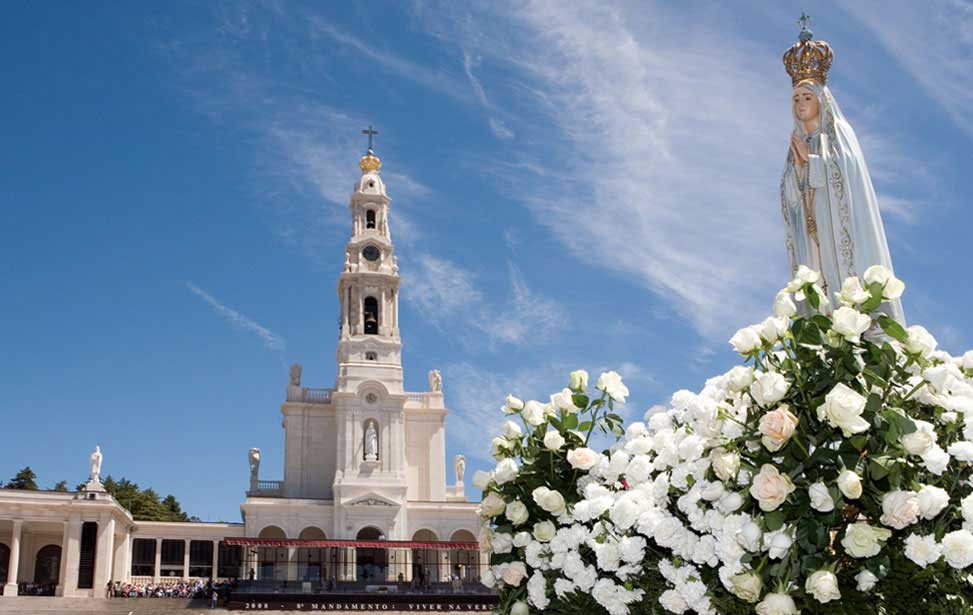
Since the extraordinary events of the 13th of October, 1917, the prophecies bestowed upon the shepherd children of Fátima have been subject to intense scrutiny and debate. While devout believers view these occurrences as divine intervention—bolstered by the Vatican's official recognition in 1930—others offer explanations grounded in natural atmospheric phenomena.
Today, curiosity persists regarding the three secrets disclosed to the children, aged seven, nine, and ten at the time. The first two revelations, involving a vivid depiction of "Hell" and a dire warning of impending wars, are widely known. However, the contents of the third prophecy, shared in writing with the Vatican by Lúcia in 1941, remain shrouded in mystery. Entrusted with a solemn vow of confidentiality until 1960, this revelation has yet to be disclosed by any Pope.
Lúcia, who entered a convent in 1928, outlived her cousins Francisco and Jacinta, who tragically fell victim to the Spanish flu pandemic. Despite her passing in 2005, Lúcia's devout legacy endures, with expectations that she will eventually be honoured with beatification, joining her cherished cousins in sainthood. As speculation persists, Fatima continues to captivate visitors with its profound spiritual significance and intriguing historical mysteries.
TOP TOURS OF FÁTIMA
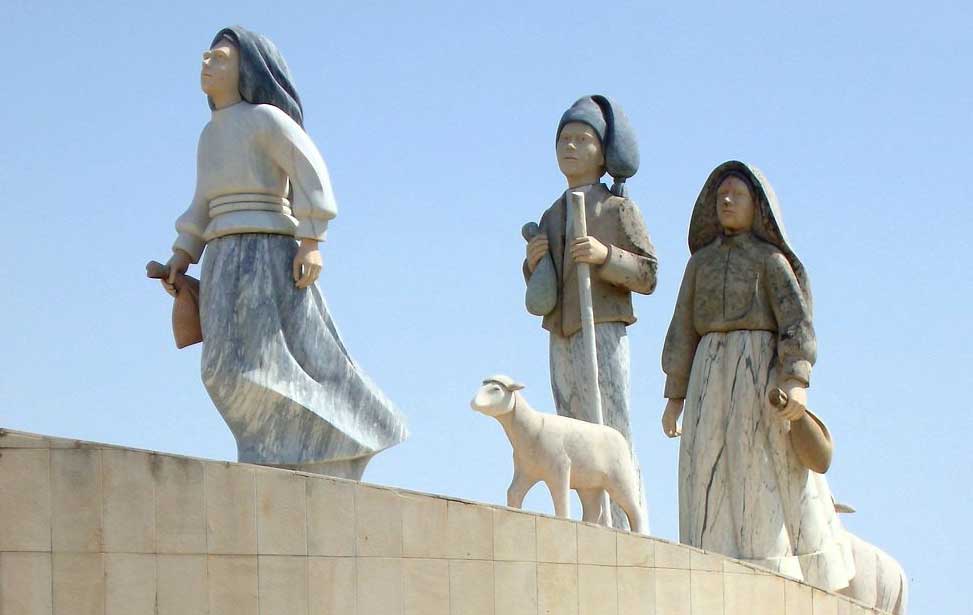
Fátima Full-Day Private Personalised Tour
Spend the day at the Fátima Sanctuary on a private full-day tour from Lisbon and discover one of Europe's most popular pilgrim sites on an itinerary customised to your preferences. Meet your guide by the Hard Rock Café Lisbon (hotel pick-up available on request), and transfer to Fátima in the Centro Region of Portugal. Discover each corner of the Fátima Sanctuary, including the Basilica of Our Lady of the Rosary of Fatima, the resting place for the three shepherd children. Go to the Chapel of the Apparitions and the Basilica of Most Holy Trinity to see temporary exhibitions, and attend 11:00 mass at the ecumenical Basilica of Most Holy Trinity.
Visit the impressive "Life of Christ" wax museum (entrance fees not included) and explore the life of Christ in more than 200 wax models. Enjoy some free time for lunch. Then, visit the small village of Aljustrel to see the homes of the three shepherd children, before your return transfer back to Lisbon.
(24) | 8 Hr | ✔ Free Cancellation
Check Avalability
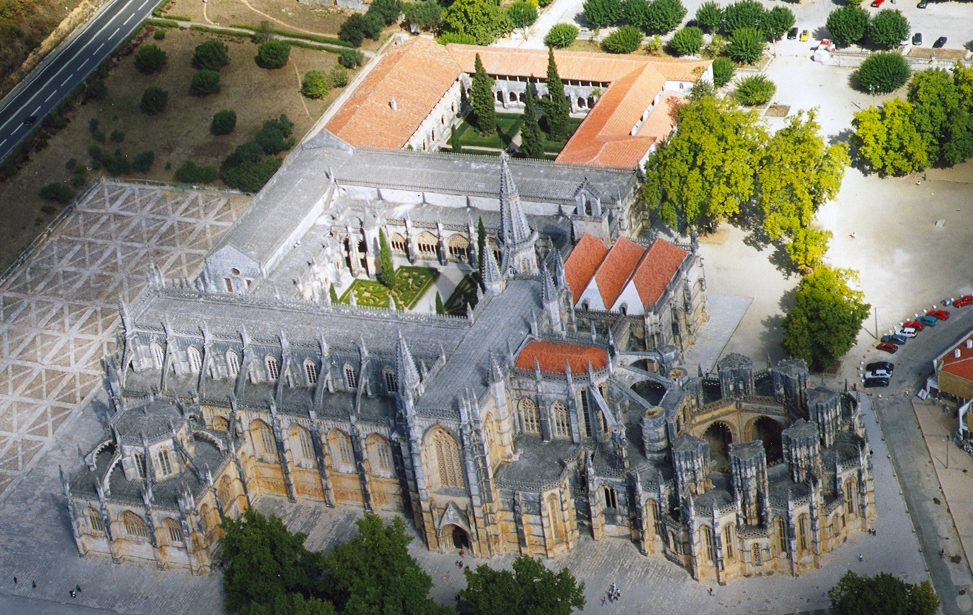
Fátima, Batalha, Nazaré, and Óbidos Day Tour
Explore Portugal’s rich cultural and religious history on this full-day tour from Lisbon. Visit Fátima, one of the world's largest pilgrimage sites and its huge modern church, Batalha and Nazaré. Explore the historic village of Óbidos.
Pick-up will be at your hotel or accommodation in Lisbon. If your hotel is in the Alfama, Bairro Alto, or Baixa de Lisboa areas or your hotel is difficult to access by car, then an alternative pick-up location will be arranged.
(290) | 10.5 Hr | ✔ Free Cancellation
Check Availability

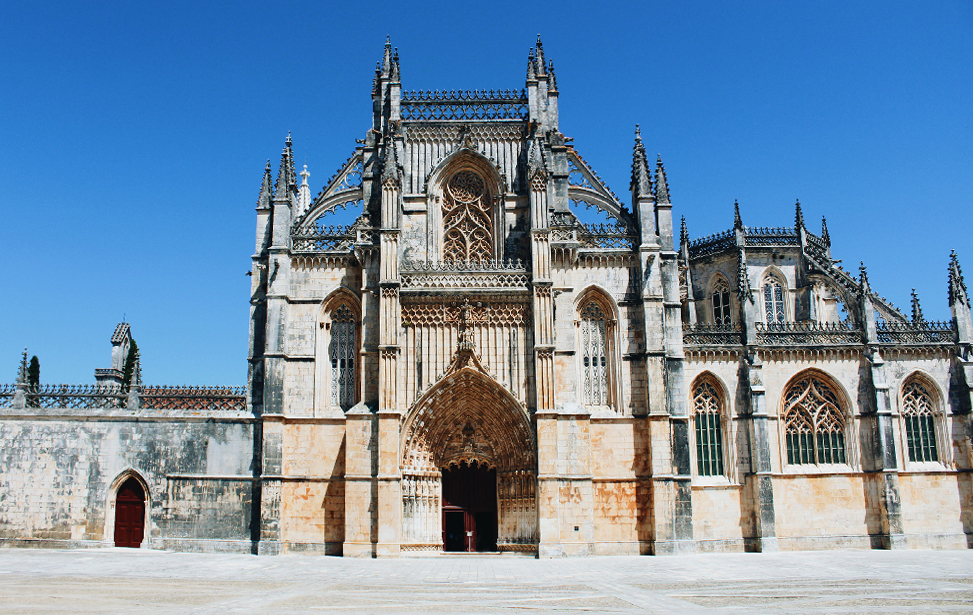
Fátima, Batalha, Nazaré, and Óbidos Tour
Benefit from pickup from your accommodation in Lisbon and then relax on the one hour drive to the Sanctuary of Fátima. Pass historic villages on the way to one of the most famous pilgrim sites in the world. Learn about the Marian apparitions on a guided tour of the old and new monuments and enjoy some free time to look inside the Chapel of the Apparitions or other structures. Then, head to the Dominican convent of the Monastery of Batalha. Continue to Alcobaça Monastery, established in the 12th century by the first King of Portugal. Hear a tragic love story from Portuguese history, and then get some free time to try the local food and wine during lunch.
Continue to the charming fishing village of Nazaré to visit a 16th-century shrine and take in the stunning views. Move on to the walled city of Óbidos to stroll the medieval streets and marvel at the UNESCO World Heritage monuments. Taste a traditional ginjinha liquor before the return drive to Lisbon.
(815) | 11 Hr | ✔ Free Cancellation
Check Avalability
WHERE TO STAY IN FÁTIMA
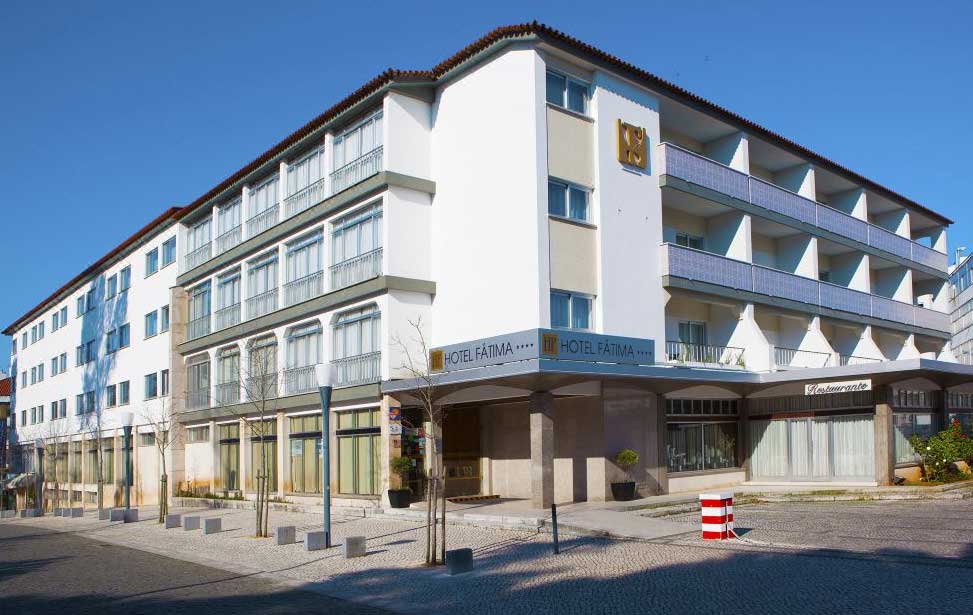
Hotel Fatima ★ ★ ★ ★8.9/10 Faboulous (1,862 verified customer reviews) Hotel Fátima is a 4-star hotel within easy walking distance to the Sanctuary of Fátima and the Apparitions Chapel. It features a large lounge area, bar and business centre. All rooms are equipped with air conditioning, satellite TV and a work desk. The hotel restaurant serves regional Portuguese and international cuisine. There are also facilities available for hosting weddings, banquets and conventions. |
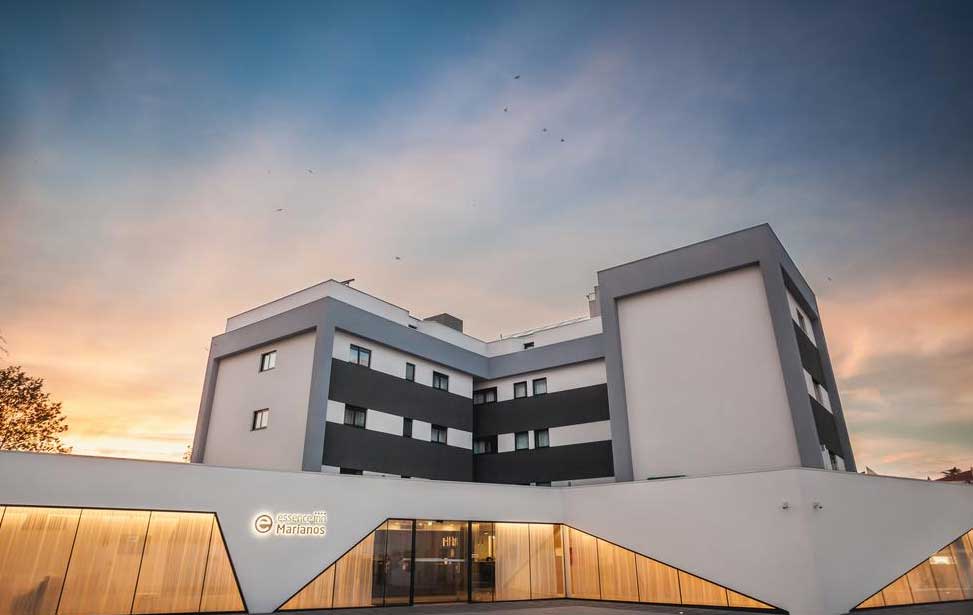
Essence Inn Marianos ★ ★ ★ ★8.9/10 Fabulous (1,389 verified customer reviews) The Essence Inn Marianos hotel is located in the centre of Fátima, just 50 yards away from the Shrine, in Fatima. Room décor varies depending on the floor and free WiFi is available throughout. The bright refurbished rooms have private bathrooms with a shower, air conditioning and a direct-line telephone. The Essence Inn Marianos also features a restaurant, a chapel and private free parking. |
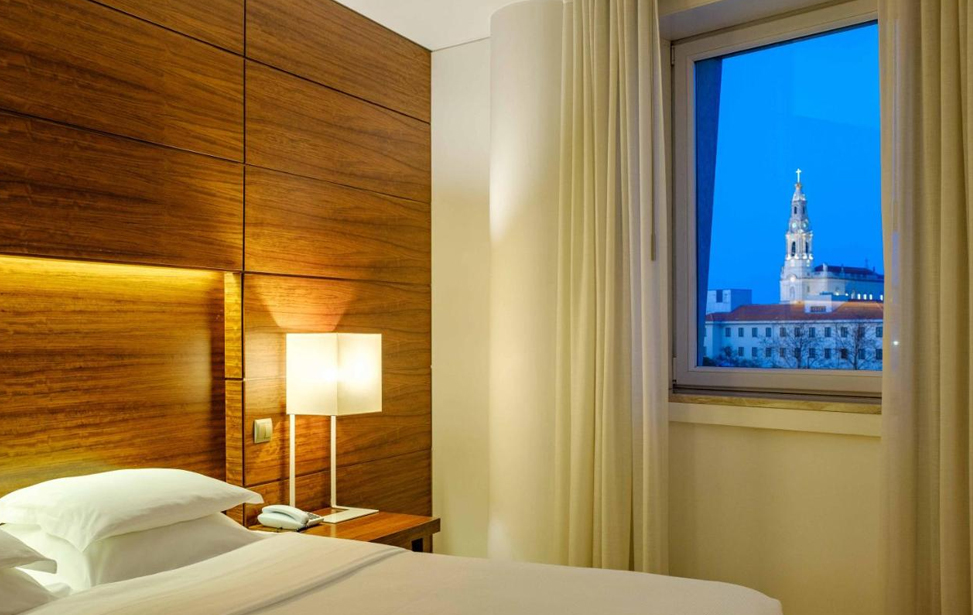
Hotel Santa Maria ★ ★ ★ ★9.1/10 Superb (4,730 verified customer reviews) Located just a 2-minute walk from the Sanctuary of Our Lady of Fátima, Hotel Santa Maria is a serene retreat offering modern comfort and spiritual tranquility. Guests can enjoy air-conditioned rooms with free Wi-Fi, minibars, and soft carpeted floors, ensuring a comfortable stay. |
THE SANCTUARY AT FÁTIMA
Constructed over time in the vicinity of Cova da Iria, where three children witnessed the Marian apparitions, the Sanctuary of Fátima stands as a testament to faith and devotion. Comprising various buildings, shrines, and monuments, it embodies the religious, political, and social significance of the event. Spread across panoramic landscapes, the sanctuary is anchored by the Basilica of Our Lady of the Rosary and the Basilica of the Holy Trinity. At its heart lies the Chapel of the Apparitions, a humble structure marking the sacred ground where pilgrims first honoured the apparitions. This revered site, now known as Our Lady of Fátima Sanctuary, attracts visitors worldwide, seeking spiritual solace and historical insight into the transformative events that unfolded here.
CHAPEL OF THE APPARATIONS
During the apparition of October 13, Lucia de Jesus, Francisco Marto and Jacinta Marto were requested by "Our Lady of the Rosary" to build a chapel in her honour. The construction started in 1919 on the very same spot as five of the six occurrences. On 6 March 1922, anti-catholic adversaries planted a bomb within the unfinished shrine and caused considerable damage precipitating the second stage of construction. It re-opened on January 13, 1923. Today the Chapel of the Apparitions is housed inside a glass enclosure opened on one side and was inaugurated during the first visit of John Paul II in 1982. Inside there's a sculpture of Our Lady which marks the site where an oak tree from where the Lady of the Rosary is said to have stood. The work of José Ferreira Thedim, a sculpture carved from Brazilian cedarwood and measures just over a metre tall. It was solemnly crowned on the 13th of May 1946 by Cardinal Aloisi Masella, a pontifical legate. The crown is made of solid gold weighing 1.2 KG and contains 313 pearls and 2679 precious stones. The crown also contains a bullet removed from John Paul II following his assassination attempt in 1981. The statuette only wears her crown on special occasions.
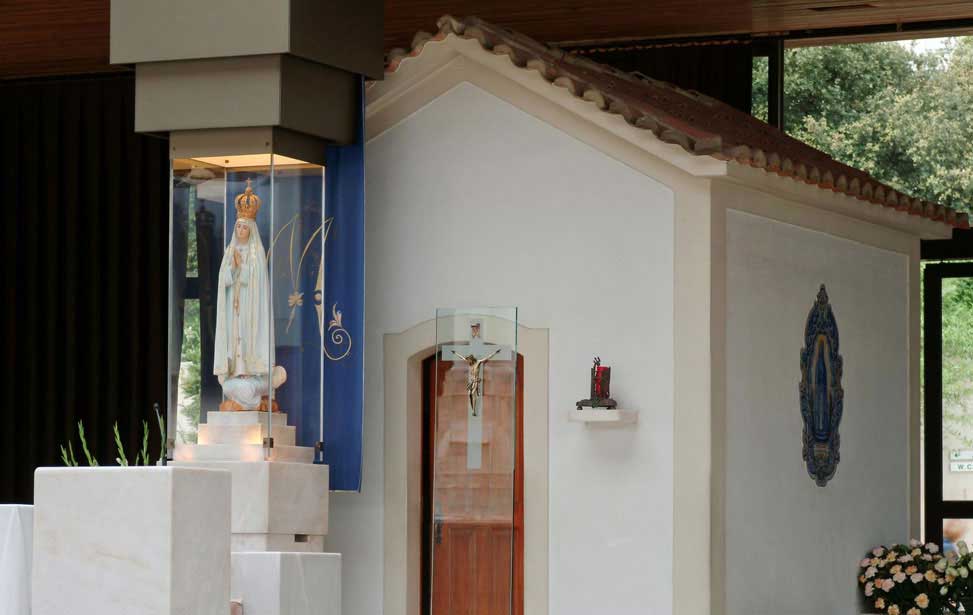
Chapel of the Apparitions - Fátima
THE BASILICA
At the heart of the sprawling 150,000 square meters (37 acres) plaza within the Sanctuary stands the magnificent neo-classical limestone basilica. Its soaring bell tower, stretching 65 metres (213 ft) skyward, is crowned with a 7KG bronze crown, while a towering white marble statue of the Immaculate Heart of Mary, standing at 4.73 metres tall, adorns its façade. Housing a carillon of 62 bells, including a colossal bell weighing 3,000 kilograms (6,600 lb), and a clapper of about 90 kilograms (200 lb), the tower commands attention. Two expansive colonnades extend from the tower, linking it to the sprawling conventual and hospital buildings. Construction commenced on the 13th of May, 1928, culminating in the Basilica's consecration in October 1953. Adorned with 15 altars dedicated to the 15 mysteries of the Rosary, and featuring a poignant painting above the high altar depicting Our Lady conveying her messages to the children, the Basilica also serves as the final resting place for all three shepherd children, with their tombs situated behind the high altar.
Open for mass from 07h30.
360 Rua de Santa Isabel, 2495-424, Fátima, Portugal. | 39º 37' 55.7" N | 08º 40' 18.4" W
+351 249 539 600 | info@fatima.pt | Website
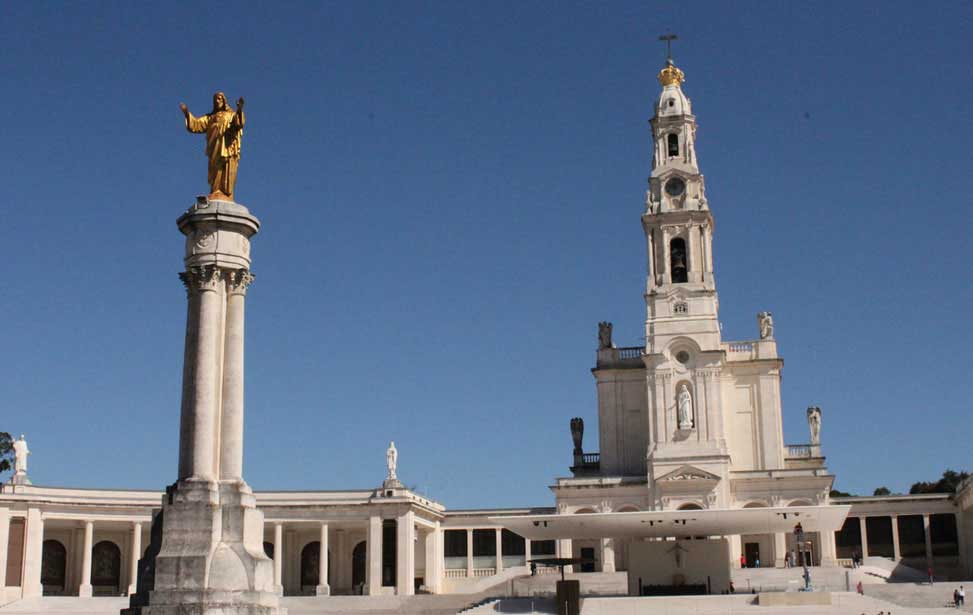
The Basilica - Fátima
AROUND THE SANCTUARY
The Big Holmoak is a replacement of the tree where the three Shepard children awaited the operations of Mary. The original was severely damaged by over-enthusiastic relic hunters. Its original location lies within the Chapel of the Apparitions. Standing upon a pillar in the centre of the square, is the Monument to the Sacred Heart of Jesus. It was constructed on the location of a natural spring, its waters were also considered sacred. At the entrance to the sanctuary, there's an enclosure containing a segment of the Berlin Wall brought to Fátima in 1994 to mark the connection between the visions and the fall of Communism. The large circular building opposite the sanctuary is the Paul VI Pastoral Centre, a complex dedicated to the study and contemplation of the message of Fátima and the issues which dominate the modern world.
Close by is the Sacred Way which marks the route the young shepherds would have taken from their homes in Aljustrel to the site in Fátima. Along the way 15 small chapels and shrines are marking the points of particular interest such as the The Well of Arneiro which was once in the garden of Lucia's house, where a second apparition occurred and the Valinhos monument where the fourth manifestation of Our Lady appeared.
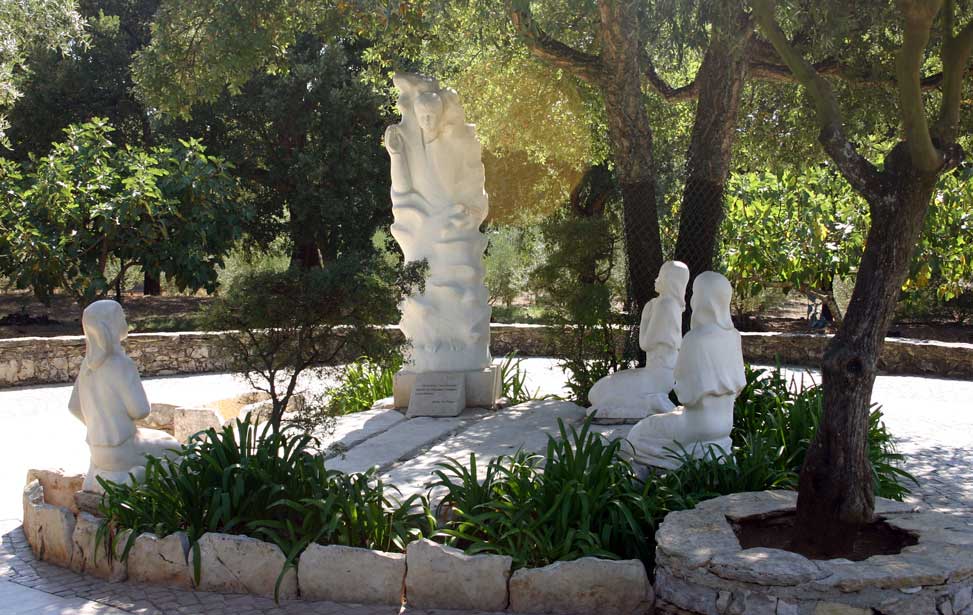
The Sacred Way - Fátima
WHERE TO EAT IN FÁTIMA
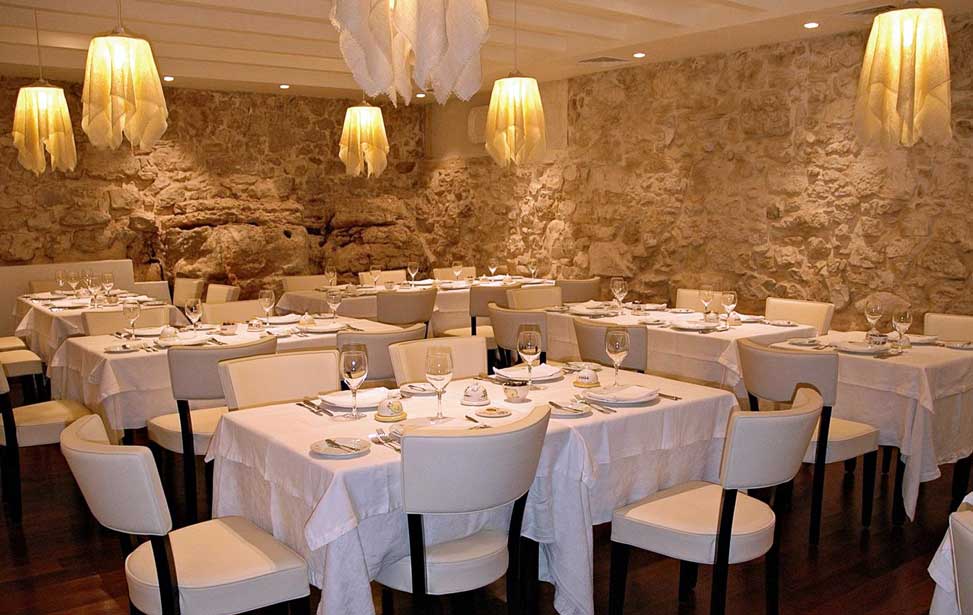
Tia Alice Restaurante One of the best restaurants not only in the area but as the country as a whole. Ideally located close to the sanctuary dinner here is the perfect way to round off the day. A flight of wooden stairs guide you down to an intimate dining area with stone walls. Tia Alice (Aunt Alice) first opened it's doors in 1988 and have gained a great reputation for fine dinning and mastery of Portuguese fare. Far from being pretentious the dinning experience here is relaxed and friendly.
|
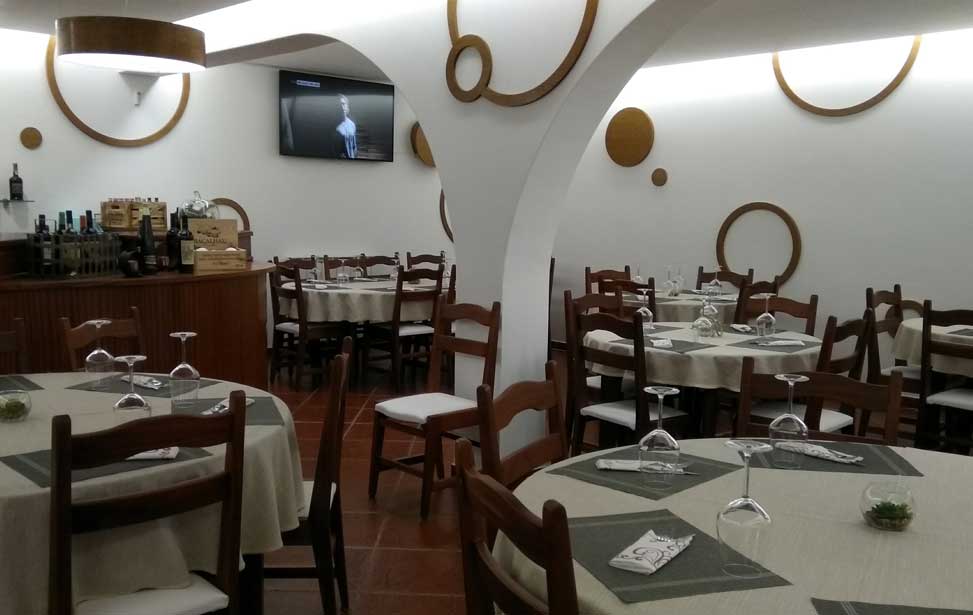
A Cave A small yet homely restaurant which serves beautifully presented Portuguese and international dishes at reasonable prices. The staff are very friendly and always at hand to offer advice and suggestions. If possible keep some room for their tasty selection of desserts. There are vegetarian, vegan and gluten free options available here too.
|
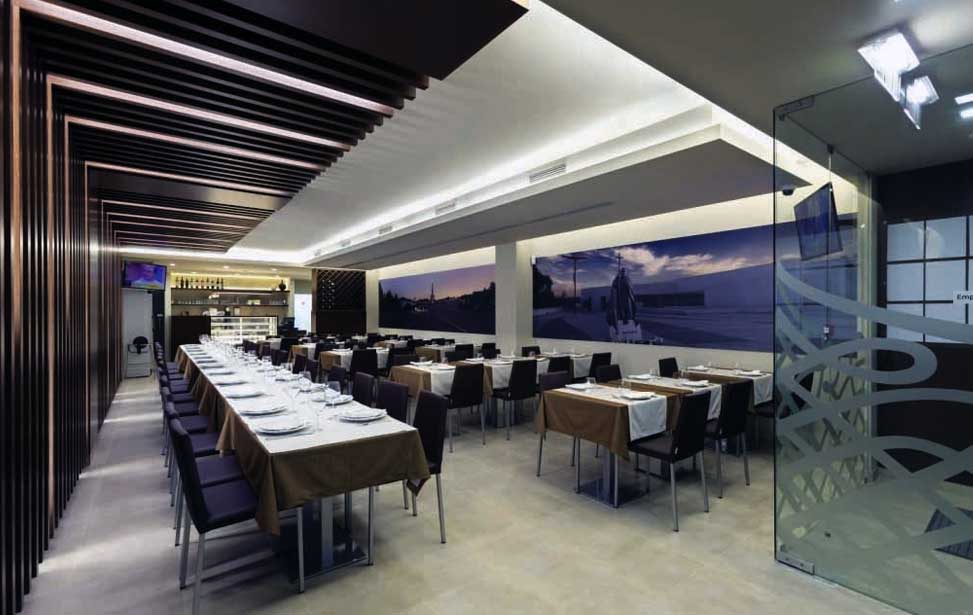
Restaurante ManhasManhas serves authentic Portuguese cuisine with a contemporary twist. Quality is constantly very high as is the service. The friendly and attentive staff always making you feel welcome and much appreciated. The atmosphere too is laid back and the prices are reasonable.
|
AMENITIES IN FÁTIMA
|
There is a cafeteria on site and plenty of cafés and restaurants dotted around in close proximity to the sanctuary. | |
|
There are toilets on site in various places. | |
|
Apart from the 12 and 13 th May and October there's no shortage of parking spaces at the shrine and around. The majority of parking is free. | |
|
The whole grounds are easy to access for those with impaired mobility and wheelchairs are available on request. |
THE CHILDREN'S HOMES
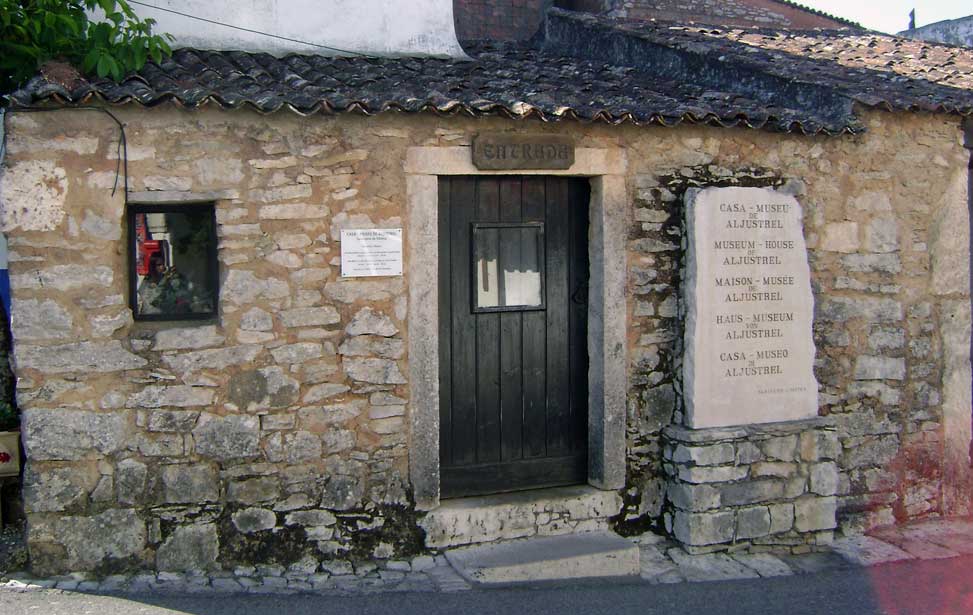
Lúcia de Jesus dos Santos Museum
The homes of the shepherd children have been preserved over time and now are museums open to the public. In the village of Aljustrel a short distance from the Sanctuary is the home of Jacinta and Francisco Marto.
Daily: 09h30 - 17h00.
42 Rua de Aljustrel, Fátima, 2495-301, Portugal.
39º 36' 58.7" N | 08º 39' 48.8" W
+351 249 521 777
Two minutes away is the family home of Lúcia de Jesus dos Santos who lived her adult life as a nun. On February 13, 2017, Sister Lúcia was accorded the title Servant of God, as the first major step toward her canonisation.
Daily: 09h30 - 17h00.
86 Rus dos Pastorinhos, Fátima, 2495-301, Portugal.
39º 36' 56.7" N | 08º 39' 53.7" W
+351 249 781 638
MIRA DE AIRE CAVES
Not all the interesting things in the Fátima area are associated with the heavens. For those who seek pleasures of the underworld, the largest network of subterranean caverns in Portugal are found in Mira de Aire only over eight miles (13.5km) south of Fátima. The caves themselves extend almost seven miles (11km) into the hills of the Parque Natural das Serras de Aire e Candeeiros, 600 metres of which are open to the public. The Mira de Aire Caves are considered one of the seven natural wonders of Portugal. Over several levels, the visitor descends 683 steps into the depths where multi-coloured lights illuminate the amazing array of stalactites, stalagmites and other geological features to great effect. Visits to the caves are organised in groups that are skilfully guided for 45 minutes through the site stopping along the way for explanations of how nature has formed such wonders. Highlights of the tour include an underground lake and a waterfall. The Mira de Aire caves were stumbled upon by local residents in 1947 however they didn't open to the public until 1974. Above ground, there's a small waterpark with swimming pools and a bar for adults and water slides to keep the young ones amused.
High Season: Daily 09h30 – 19h00, Low Season: Daily 09h30 – 17h30
Adult: €6.60, Child <12 Yrs: €3.90
470 Av. Dr. Luciano Justo Ramos, Mira de Aire, 2485-001, Portugal. | 39º 32' 39.3" N | 08º 42' 57.6" W
+351 244 440 322 | grutasmiradaire.com | Website
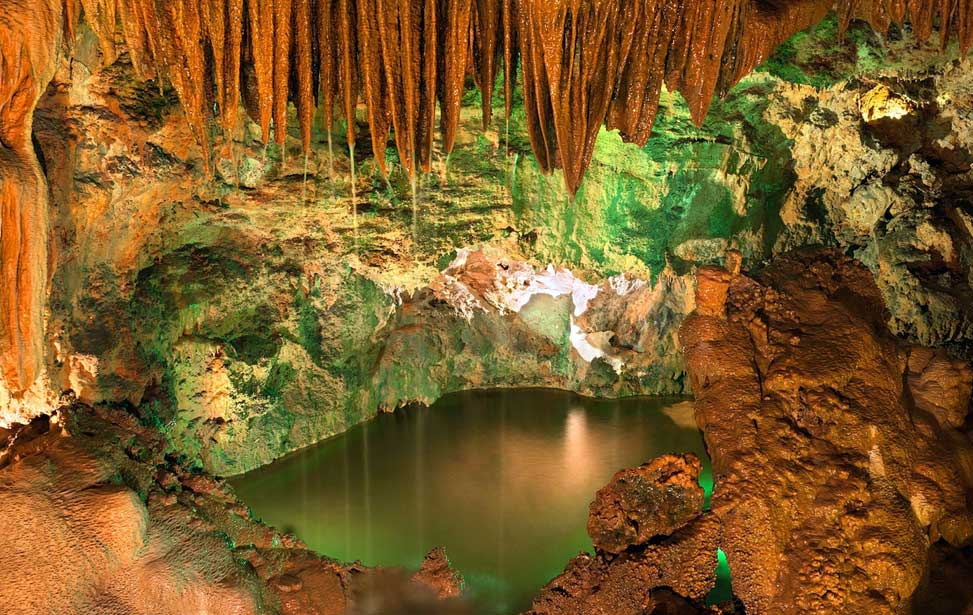
Mira de Aire Caves
PEGADAS DOS DINOSSÁURIOS
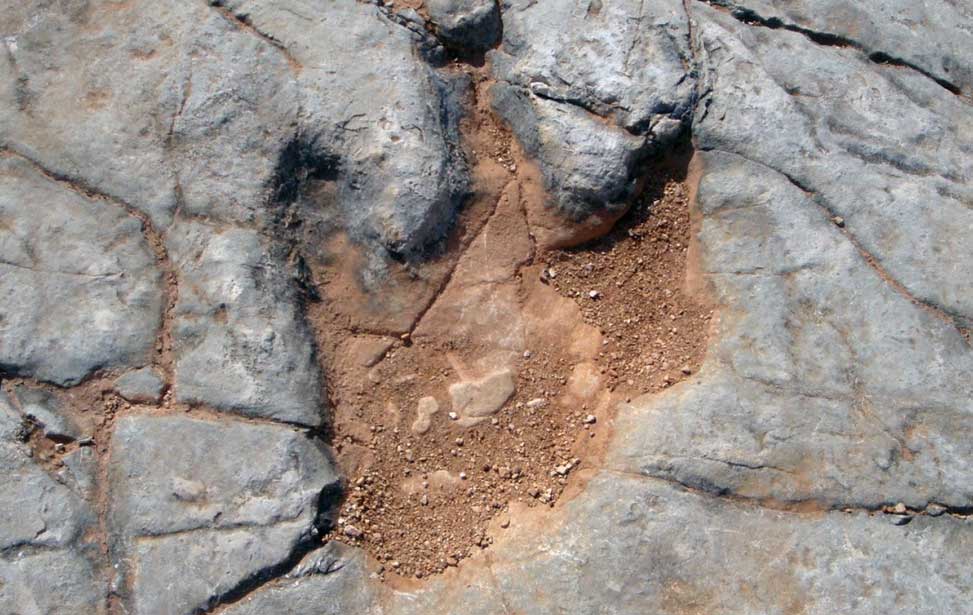
Pegadas dos Dinossáurios
Non-creationists in the Fátima area head straight to the Pegadas dos Dinossáurios just outside the village of Bairro in the Serra de Aire hills six miles (10km) south of Fátima. It was here, in 1994, palaeontologists were astonished to discover the oldest and largest collection of preserved Sauropod tracks found anywhere in the world. The footprints of these giant herbivores are believed to be 175 million years old, first trodden in an ancient shallow lagoon since petrified into limestone. Hundreds of giant tracks (pegadas) are easy to see cast along a 150-metre area within a disused quarry floor. Judging by the spacing between the footprints experts believe these sauropods were up to thirty metres in length.
In the park there are full size Sauropod statues and information boards which explain in further detail about the site.
Tuesday - Sunday 10h00 – 12h30/14h00 – 18h00
€3.00
Estrada de Fátima, Ourém, 2490-216, Portugal.
39º 34' 20.5" N | 08º 35' 40.3" W
+351 249 530 160
dinossaurios@hotmail.com | Website
HOW TO GET TO FÁTIMA
78 miles (126km) North East of Lisbon Portela Airport Website GET A GREAT DEAL ON YOUR FLIGHT HERE:
|
|
From Lisbon take the A1 (with tolls) North 78 miles (126 km), exit at Fatima and follow signs to the Santuario.. GET A GREAT DEAL ON YOUR CAR HIRE HERE:
|
|
Please note the Fátima train station as mentioned on timetables is in fact 19 miles (30 km) east of Fátima town itself. It's suggested to alight the train at Caxarias from Lisboa Santa Apolónia and take a connecting bus from there. Train Timetable | Connecting Bus Timetable |
|
Rede Expressos run services to Fátima from Lisbon Sete Rios coach station and takes about 90 minutes. Website |


 Lisbon Card Discounts
Lisbon Card Discounts






